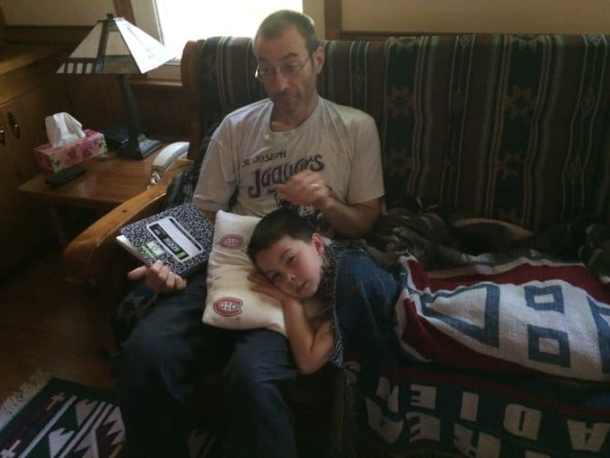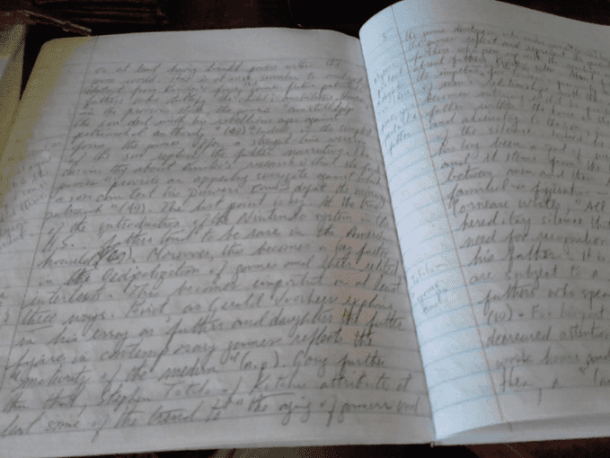An academic perspective on goal tracking and time management
The focus of our most recent #AcWriChat TweetChat event was goal tracking and time management. During this event we offered a number of resources from our blog to support participants in their academic pursuits.
Common to our TweetChat events, we asked several questions to promote personal reflection and sharing of ideas. Marc Ouellette, a regular participant in these discussions shared his approaches in response. Below is a summary of our questions and his contributions from the event.
Q1: How do you define and manage your writing goals?
Ouellette: “I am terrible at this but also probably secretly good at this. My simple goal is “words hit the page.” Here’s the awful but prolly okay truth: I can write anywhere & have, incl sick child on my lap b/c any words are better than no words & it’s a start.”

Q2: How do you balance your writing goals with other commitments?
Ouellette: “See A1. This is also where ability to work anywhere independent of devices helps. Gimme an hour anywhere. Skating practice is good. The music is nice. Sometimes. Beach, dock. I also work beside my kids while they’re doing h/w. I tend to write at moments ‘between.’”

Q3: What problems do you face in trying to manage your time to write?
Ouellette: “Even though I’ve learned to write whenever & wherever, it’s the same old stuff: urgent emails, sick kids, surprises, etc. but, b/c I learned to adapt long ago (b/c reasons), it’s not so bad. Lots of sideways moves help. Also, date & number everything. As I’m writing, if I think of something else that connects or needs to be covered, it goes into the margins in case I have to stop.”

Q4: What strategies do you use to overcome procrastination?
Ouellette: “Recognize the difference between procrastination and the need to arrange, order, & make sense of your world, your thoughts, your environment before you can write. That’s not procrastination. It’s part of problem solving.”
Q5: What strategies do you use to reduce or prevent interruptions to your writing time?
Ouellette: “Turn your back on the computer. Don’t write on the computer. Write on a paper at a different spot. Our kitchen, for example has a very well lit bay window. Write at the beach. I write on airplanes. Buses. Trains. Those times alone. Write.”
Q6: What other strategies do you use to stay focused on your writing goals?
Ouellette: “In 1991, I had a boss who refused to use email. At 5pm everyday he left post-its–aka yellow email–on everyone’s computers. For real. I now leave them for myself: in progress, accepted, revise, circulating, in press. Also make annotated tables of contents.”
We invite you to join us on Twitter this Friday for our next #AcWriChat TweetChat event where we’ll be discussing how academic authors can stay motivated and minimize distractions.
For more tips on goal tracking and time management, we also encourage you to preorder our forthcoming Guide to Making Time to Write: 100+ Time & Productivity Management Tips for Textbook and Academic Authors.

Eric Schmieder is the Membership Marketing Manager for TAA. He has taught computer technology concepts to curriculum, continuing education, and corporate training students since 2001. A lifelong learner, teacher, and textbook author, Eric seeks to use technology in ways that improve results in his daily processes and in the lives of those he serves. His latest textbook, Web, Database, and Programming: A foundational approach to data-driven application development using HTML, CSS, JavaScript, jQuery, MySQL, and PHP, First Edition, is available now through Sentia Publishing.
Please note that all content on this site is copyrighted by the Textbook & Academic Authors Association (TAA). Individual articles may be reposted and/or printed in non-commercial publications provided you include the byline (if applicable), the entire article without alterations, and this copyright notice: “© 2024, Textbook & Academic Authors Association (TAA). Originally published on the TAA Blog, Abstract on [Date, Issue, Number].” A copy of the issue in which the article is reprinted, or a link to the blog or online site, should be mailed to Kim Pawlak P.O. Box 337, Cochrane, WI 54622 or Kim.Pawlak @taaonline.net.

